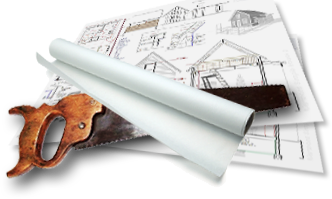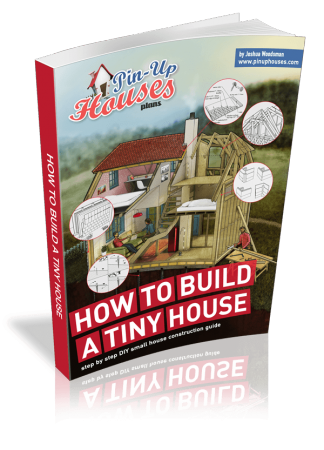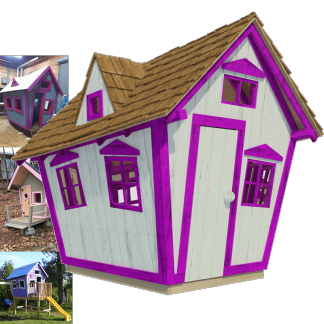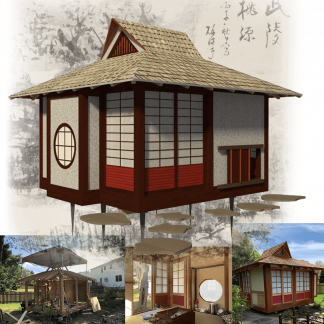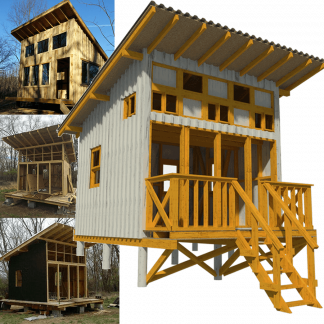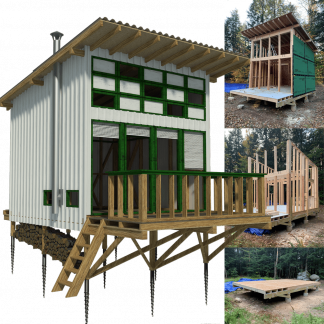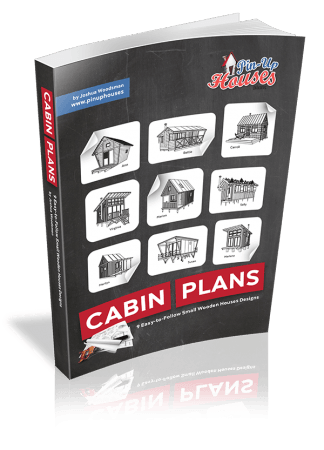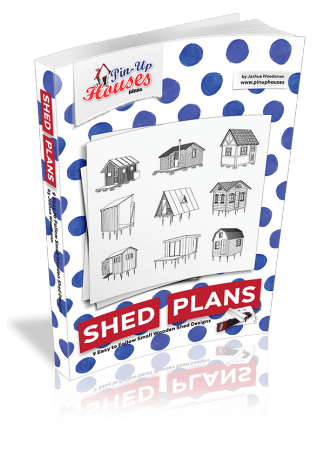Financial Freedom Through Tiny Living
Transitioning to a tiny home might seem overwhelming, especially when it comes to finances, but with smart budgeting, downsizing to a smaller space is a practical and freeing choice. Moving into a tiny home is more than just reducing square footage; it’s about focusing on what truly matters and creating a budget that supports a more affordable, values-driven lifestyle. By strategically planning your finances, you can make this move without feeling financially restricted or missing out on life’s essentials.
Budgeting for Tiny Home Living
Downsizing to a tiny home goes beyond finding a smaller space. It’s about re-evaluating every dollar spent to ensure your money goes towards what adds value to your life. A detailed budget is key to making this shift smooth and financially rewarding, helping you understand your spending habits and prioritize expenses. By budgeting smartly, you can ease the transition and enjoy the benefits of a tiny home lifestyle without financial stress.
Assessing Monthly Expenses for a Tiny Home
Switching to a tiny home typically reduces costs, from housing to utility bills, but that doesn’t mean budgeting stops there. Evaluate your current monthly expenses, including utilities, maintenance, and housing. Moving into a tiny space often allows for lower utility costs and fewer possessions, but budgeting for other expenses, like moving and reconfiguring your space, ensures a smooth transition.
Using Financial Tools for Tiny Home Budgeting
Financial tools can enhance your budgeting strategy for a tiny home transition. Using tools like compound interest calculators allows you to see how savings grow over time, especially as you spend less on unnecessary items. By understanding these savings, you can make more confident budgeting decisions, focusing on goals that tiny living makes possible, like financial independence or early retirement.
Cutting Non-Essential Costs
Moving to a tiny home naturally curbs non-essential spending, as limited space discourages accumulating unnecessary items. This lifestyle shift can be refreshing, helping you differentiate between essentials and luxuries. Whether you’re trimming entertainment costs or minimizing energy bills, these savings add up, making tiny living more affordable and sustainable.
Exploring Unique Savings Opportunities
Downsizing to a tiny home often reveals new savings opportunities. Selling or donating furniture and possessions you no longer need can provide an immediate financial boost. Instead of spending on storage or moving large items, consider how letting them go aligns with your tiny home goals. Budgeting these gains effectively makes downsizing more affordable and less stressful.
Connecting Tiny Living to Financial Goals
Budgeting for a tiny home lifestyle aligns with bigger financial objectives, such as saving for travel, retirement, or an emergency fund. Downsizing makes it easier to focus on these goals, as you spend less on space and more on life’s experiences. A budget connecting tiny living with long-term aspirations creates purpose and encourages mindful spending.
Embracing Minimalism in Your Finances
Tiny home living naturally leads to a minimalist approach, which can benefit your budget. Smaller spaces mean fewer new purchases, ultimately supporting a sustainable budget. Prioritizing quality over quantity helps you maintain a comfortable lifestyle without overspending, keeping your tiny home clutter-free and financially feasible.
Building Flexibility into Your Tiny Home Budget
A flexible budget is essential for the unexpected costs of tiny home living. With limited space, small changes can have a big impact, such as adding multi-functional furniture or creating efficient storage solutions. From potential repairs to organizing these storage areas, costs can arise without warning. Planning for these expenses ensures your tiny home remains comfortable and functional, even as needs evolve.
Managing the Emotional Aspects of Downsizing
Letting go of belongings can be emotionally challenging. Smart budgeting, however, shifts the focus to what you’re gaining through tiny home living—more financial freedom, more time, and a simpler, fulfilling lifestyle. Downsizing becomes a positive experience when you focus on the opportunities it creates, and a mindful budget can make the journey smoother and more rewarding.

